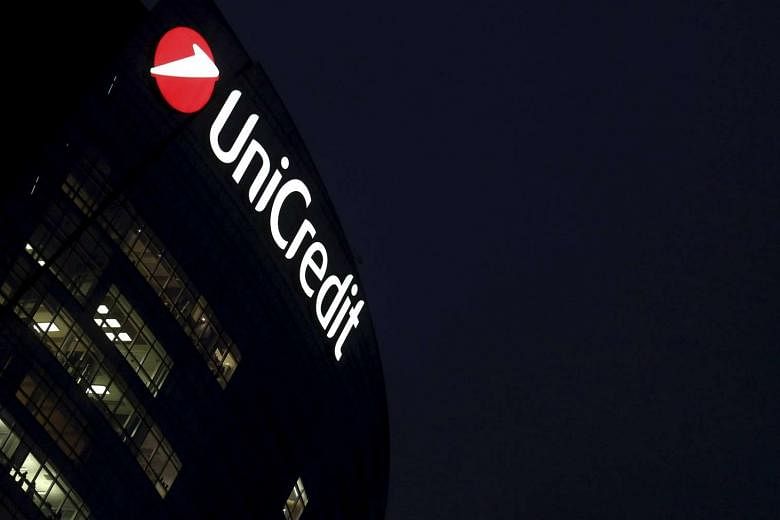LONDON (Bloomberg) - After hanging on for two years of depressed energy prices, some European banks that lent to the oil and gas industry are starting to scale down their exposure.
Lenders including UniCredit, HSBC and ING have either sold some of the loans they made to energy companies in the past two months or held discussions with potential buyers, according to people familiar with the situations, who asked not to be identified because they weren't authorized to discuss them publicly.
New loans to energy companies in the region have also fallen by more than 50 per cent this year, data compiled by Bloomberg show.
Banks are losing hope that a recent pickup in crude will be enough for them to dodge losses on energy-industry loans originally made when oil was at double today's prices.
That's making them rethink whether maintaining corporate-banking relationships is worth the potential credit risks.
"European banks have been extending the debt for one or two years thinking that the market would repair itself, just like it did in 2009-10," said Alex Brooks, an analyst at Canaccord Genuity Group Inc. in London. "It's clear that it's not going to happen."
UniCredit sold about US$100 million (S$134 million) of loans made to Prosafe SE, an operator of offshore-rig accommodation units, at a 55 per cent discount, two people with knowledge of the matter said.
ING and ABN Amro have also talked to potential buyers in an effort to sell their exposure to the Oslo-listed company's US$1.4 billion credit facilities, according to people familiar with the situations.
HSBC in recent months considered selling its loan exposure to Premier Oil and lenders to driller Fred Olsen Energy have been talking about selling their loans to potential investors, said separate people.
Spokespeople for UniCredit, ABN Amro, ING, HSBC, Prosafe, Premier Oil declined to comment on loan sales. Officials at Fred Olsen didn't reply to calls and e-mails seeking comment on the potential sales.
European banks have been slow to cut exposure to oil and gas companies, partly because borrowers in the region can better withstand lower energy prices compared with many of their US counterparts, who have higher expenses because they rely more on costly shale production.
Industry borrowers in Europe also include more service providers that are cushioned against swings in crude by long-term contracts.
US energy producers also tend to borrow more in bond markets than their European competitors, which means when times get tough, the companies have little flexibility to negotiate new borrowing terms.
By contrast, European banks have been more willing to support energy companies, and have been reluctant to sell loans, because of long-term prospects, such as potential fees from underwriting and acquisitions.
"When it comes to selling loans, a bank has to weigh everything," said Lewis Grimm, a lawyer specializing in risky companies' debt at Jones Day. "The relationship it has with the client is critical."
Banks have only lent US$3 billion to oil companies in Europe since April 1, set for the lowest quarterly tally in almost a decade, according to data compiled by Bloomberg.
Brent crude prices are hovering around US$50 a barrel even after jumping 36 per cent this year. They were at US$115 a barrel two years ago, according to data compiled by Bloomberg.

